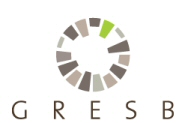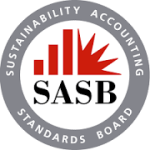
Ever since the inaugural Real Estate Assessment in 2009, the idea behind GRESB has never wavered: to provide transparency on the sustainability performance of real estate funds and companies so that investors can factor portfolio risks and opportunities into their decision making.
This commitment continues today with the release of the new Public Disclosure Snapshot and data platform measuring the level of material environmental, social and governance (ESG) disclosure by the listed property sector. For the first time we are able to assess any REIT or listed property company, not just those that participate in the GRESB Real Estate Assessment.
The new dataset was created in response to increasing demand from institutional investors for ESG disclosure across the entire FTSE EPRA/NAREIT Developed Index and GPR 250 index. It uses 22 indicators that focus on the topics covered by REITs and listed companies in their commitment to publicly inform stakeholders about material ESG issues and does not judge the content or ambition level of the information disclosed.
Combined, the indicators provide a Public Disclosure Level expressed through a sliding scale from A to E. A-level companies are the most transparent with a high level of ESG disclosure, while E-level companies are the least transparent with little or no ESG disclosure. We also place each entity within a comparison group based on country/region, property sector and market value to provide a meaningful market comparison. Here is more information on how the data is collected.
With this new information available in the GRESB Assessment Portal, GRESB Investor Members can now review the ESG disclosure level of the entire FTSE EPRA/NAREIT Developed Index and GPR 250 Index. They can see which REITs and property companies are the most transparent about their ESG performance, which fall into the mid-range and which are behind the curve. And, crucially, they can exploit these differences in the market.
Summary findings
- 2017 GRESB Real Estate Assessment participants are more transparent about their ESG commitments and performance than companies that do not participate in the GRESB Assessment. Half of GRESB participants (49.7%) have an A-level disclosure, while only 4.3% disclose at an E-level.
- ESG disclosure is significantly less established in the wider listed universe. 53.3% of companies that did not participate in the 2017 Assessment have an E-level disclosure, while only 3.6% have an A-level disclosure.
- The data shows that more improvements are needed by listed property companies and REITs if they are to respond to growing investor demand for transparency on ESG performance.
See the Public Disclosure Snapshot for more findings, a regional analysis and the list of all REITs and property companies included in the dataset.



